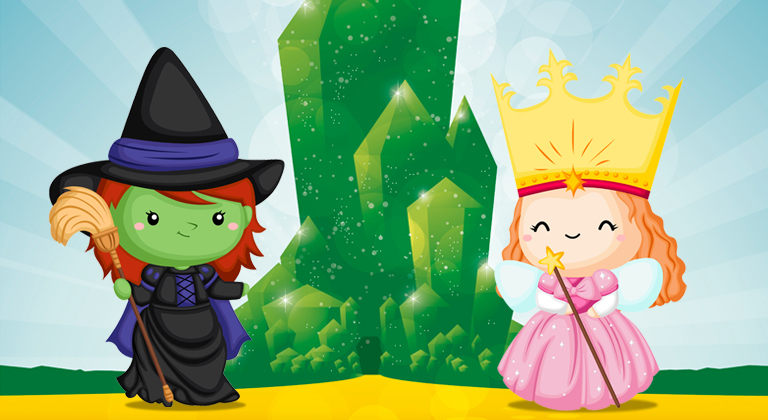Self-Publishing Reaches Milestone with inclusion in Richard and Judy Book Club
The Richard and Judy Book Club is more familiar to UK authors, but for those of us in the US or Canada, you can just think of it as the British equivalent to Oprah’s Book Club. Getting your book on their list can do wonders for your sales and career, but until now has always been reserved for works from the traditionally published world. That’s why it’s a big deal that their list recently included a book by Mark Dawson. While Dawson is a very well-known name in the self-publishing space, he’s still not backed by a big publisher, so it’s a big shift to see a book by someone like him be included.
Slowly but surely, self-published authors and their books are becoming more mainstream, breaking through barriers that once only let trad pub books pass through. Hopefully the recent inclusion of Dawson’s book isn’t just a one-off aberration, but instead the start of a shift towards including more independent authors and their work.
With the invention of the Amazon Kindle, the publishing industry changed forever. Today, thousands of self-published authors are able to make a comfortable living through their books in a way that simply wouldn’t have been possible twenty years ago – and yet there’s still a stigma attached to self-published books that remains hard to shift.
But that is changing, as demonstrated by the inclusion of Mark Dawson’s The House in the Woods in Richard & Judy’s 2023 Summer Book Club.
Most British readers will be instantly familiar with the names Richard and Judy. Since 1988, husband and wife Richard Madeley and Judy Finnigan have been staples of British television – hosting This Morning until 2001, and retaining a ubiquitous presence on televisions and in newspapers ever since. In 2004, they launched the Richard & Judy Book Club, modeled after Oprah Winfrey’s Book Club in the United States, and it’s become recognized as one of the ‘kingmakers’ of British literature. To have your book selected for their twice-yearly reading lists is practically a guarantee of success.
And this summer, a self-published author is joining these distinguished ranks. The legendary self-published author Mark Dawson is having The House in the Woods, the first in his Atticus Priest crime thrillers, featured alongside five other mainstream books as part of the Summer 2023 reading list.
This is a huge deal. A massive deal. It’s practically impossible to overstate what this means to self-publishing in particular and the publishing industry as a whole.
You just have to look at other books included in the summer reading list to see what I mean. For the sixth time, New York Times bestselling author Lisa Jewell is being featured with her latest novel The Family Remains, and even James Bond is getting into the action with Anthony Horowitz’s With a Mind to Kill. Yet these are all massively mainstream books, written by huge authors and supported by immense publishing houses. To see Mark Dawson’s book alongside these others is quite unprecedented.
You see, Mark Dawson is practically the poster-child for successful self publishing. He’s the mind behind the famous Self-Publishing 101 course that has helped thousands of authors (including this one) turn writing into a career, and he’s sold millions of books worldwide.
Yet, until now, the traditionalists have always snubbed their nose at the likes of Mark Dawson. There’s still a common impression that self-published books are somehow inferior to those that have made it through the gatekeepers of traditional publishers. It doesn’t matter that this impression has been proven false countless times – for many, only traditionally published books ‘count’.
But by its inclusion in the Richard & Judy book club, it’s clear The House in the Woods is challenging this narrative. With 8,748 ratings and an average 4.5 star ranking on Amazon, plus reviews in the Mail on Sunday and The Daily Telegraph, The House in the Woods has outperformed many traditionally published books in more than just gross book sales, and it’s hard to argue that it doesn’t deserve to be featured alongside books published the ‘proper’ way.
But is this an aberration, or a sign of the times? While it’s inarguable that Dawson’s books deserve to be featured alongside traditionally published titles, people are still questioning how it managed to get a coveted spot like the Richard & Judy Book Club in the first place. It’s known as a pretty exclusive club to be part of, and it certainly takes more than just raw book sales to earn that spot.
What went on behind the scenes? And is it fair to ask that question?
I think so. Author Mark Dawson has already been dinged quite badly for trying to manipulate his ranks on the Sunday Times bestseller list by purchasing 400 copies of his own book, so it’s clear he’s been trying to ‘play the game’ in a similar way to how traditional publishers have wheeled and dealed their way onto bestseller lists in the past.
I don’t think it’s fair to criticize Dawson too heavily for this (after all, traditional publishers have been doing it for years. In 2020, one of Donald Trump’s political committees spent $158,000 on his son-in-law’s memoir to ensure it hit the coveted #1 spot.) However, it is proof that there’s more required for your book to “make it” publicly than just selling a lot of copies.
But I think Dawson’s inclusion in the Richard & Judy Book Club shows that this might slowly be changing. By achieving these incredible milestones with his self-published books, Dawson is demonstrating not just “how the sausage is made” in terms of accolades normally reserved for traditionally published books – but also that self-published books deserve the same respect as those published by Penguin, Harper, or Simon & Schuster.
Dawson has always been a pioneer and a leader among self-published writers. I think this will be another important milestone in his self-publishing journey, and one that will empower many other writers who follow in his footsteps.
Traditional publishing remains a slowly dying industry, and Richard and Judy just hammered one more nail into it’s coffin.












The book was, of course, indie published, and the paperback too, but unfortunately it took a reprint paperback with a traditional publisher (Welbeck) who is now owned by Hachette to break into the Richard and Judy arena.
Not to diminish Mr Dawson’s well-earned success, but unfortunately, I don’t think this props the door open for other self-published work to follow unless they also have traditional print deals attached.
It’s a fabulous breakthrough! Rosalind Tate